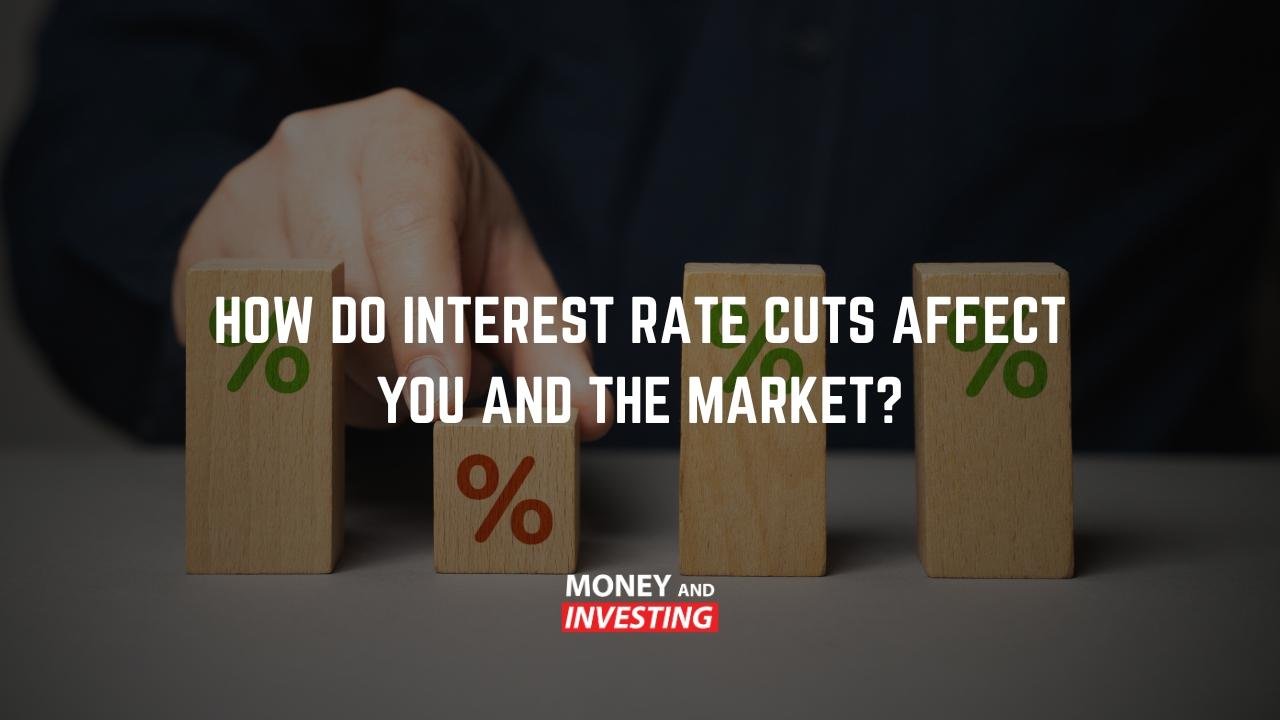Staying Steady in Shaky Markets: Andrew Baxter’s Guide to Confident Investing
What Is Market Volatility and Why Does It Matter?
Market volatility refers to the rate at which asset prices fluctuate, often reflecting uncertainty and risk. High volatility can result in rapid price swings, creating both opportunities and dangers for investors.
During strong bull markets, volatility tends to stay low as investor confidence remains high. However, in uncertain times, volatility becomes a key concern—no longer just a background metric, but a central challenge to manage.
________________________________________
What’s Driving Today’s Market Volatility?
Several key factors are currently contributing to heightened market volatility:
1. Tariffs and Trade Tensions
Recent moves by the U.S. government to reimpose tariffs have reignited trade tensions, especially with major global partners. These actions have drawn widespread criticism for destabilizing global commerce and injecting uncertainty into markets.
2. Geopolitical Unrest
Political instability—such as failed ceasefire agreements, shifts in foreign policy, and global conflicts—adds pressure. When these events dominate headlines, investor anxiety rises sharply, often triggering market swings.
3. Market Corrections Following Extended Growth
After years of significant gains—particularly in tech, where some indices rose over 300%—a correction was anticipated. A 10–15% pullback is normal, but when sell-offs happen quickly, they tend to spook investors.
4. Rising Inflation Concerns
Tariffs have led to higher import costs, which may raise consumer prices. This can force central banks to raise interest rates to combat inflation, adding further volatility to the market environment.
________________________________________
How Should Investors Respond?
Understanding market psychology is key. Many poor investment decisions are made in panic during volatile periods. Selling during a dip often leads to missing out on the eventual recovery.
Instead, consider these strategies:
• Buy the Dips
High-quality assets often become undervalued during market sell-offs. These moments present long-term buying opportunities for savvy investors.
• Use Options Wisely
Selling puts can help enter positions while earning premiums. Buying protective puts during low-volatility periods can offer crucial downside protection later.
• Diversify Your Portfolio
Avoid over-concentration. Spread your risk across a mix of stocks, ETFs, and asset classes to improve stability.
• Trade Volatility Directly
Consider instruments like VIX ETFs to hedge against market uncertainty and protect your portfolio during turbulent periods.
________________________________________
The Power of Education and Objectivity
Investing in uncertain markets demands a clear, informed strategy. While short-term losses can be tough, history shows that markets recover over time. Staying disciplined and objective—rather than emotional—is often what separates successful investors from the rest.
Protective strategies, like using options, may involve some cost, but they can dramatically limit downside risk—often preserving capital when it matters most.
________________________________________
Bridging the Emotional Gap During Market Recovery
When the market drops, it’s tempting to panic. But rash decisions can do more harm than good. Instead:
• Keep Perspective
A 10% dip feels dramatic, but may simply be a pause in a long-term uptrend.
• Stay Committed
Ignore the noise. If your investment thesis is sound, stay the course.
• Avoid Panic Selling
Emotion-driven reactions rarely lead to positive results. Trust your research and plan.
• Review and Rebalance
Use volatility as a chance to reassess your portfolio and strengthen your positions.
________________________________________
Key Takeaways
Volatility is an inevitable part of investing. While it can be unsettling, it doesn’t have to be destructive. For well-prepared investors, it can even be an advantage.
Those who understand what drives market movement, stay calm under pressure, and follow disciplined strategies are better positioned to capitalize on volatility—not fear it.
Get your free copy of the Wealth Playbook—packed with practical checklists and strategies for navigating volatile markets—at www.wealthplaybook.com.au.
Remember: The goal of smart investing isn’t to avoid volatility—it’s to adapt to it.
https://moneyandinvesting.com.au/blog/how-to-navigate-market-volatility/ Staying Steady in Shaky Markets: Andrew Baxter’s Guide to Confident Investing
What Is Market Volatility and Why Does It Matter?
Market volatility refers to the rate at which asset prices fluctuate, often reflecting uncertainty and risk. High volatility can result in rapid price swings, creating both opportunities and dangers for investors.
During strong bull markets, volatility tends to stay low as investor confidence remains high. However, in uncertain times, volatility becomes a key concern—no longer just a background metric, but a central challenge to manage.
________________________________________
What’s Driving Today’s Market Volatility?
Several key factors are currently contributing to heightened market volatility:
1. Tariffs and Trade Tensions
Recent moves by the U.S. government to reimpose tariffs have reignited trade tensions, especially with major global partners. These actions have drawn widespread criticism for destabilizing global commerce and injecting uncertainty into markets.
2. Geopolitical Unrest
Political instability—such as failed ceasefire agreements, shifts in foreign policy, and global conflicts—adds pressure. When these events dominate headlines, investor anxiety rises sharply, often triggering market swings.
3. Market Corrections Following Extended Growth
After years of significant gains—particularly in tech, where some indices rose over 300%—a correction was anticipated. A 10–15% pullback is normal, but when sell-offs happen quickly, they tend to spook investors.
4. Rising Inflation Concerns
Tariffs have led to higher import costs, which may raise consumer prices. This can force central banks to raise interest rates to combat inflation, adding further volatility to the market environment.
________________________________________
How Should Investors Respond?
Understanding market psychology is key. Many poor investment decisions are made in panic during volatile periods. Selling during a dip often leads to missing out on the eventual recovery.
Instead, consider these strategies:
• Buy the Dips
High-quality assets often become undervalued during market sell-offs. These moments present long-term buying opportunities for savvy investors.
• Use Options Wisely
Selling puts can help enter positions while earning premiums. Buying protective puts during low-volatility periods can offer crucial downside protection later.
• Diversify Your Portfolio
Avoid over-concentration. Spread your risk across a mix of stocks, ETFs, and asset classes to improve stability.
• Trade Volatility Directly
Consider instruments like VIX ETFs to hedge against market uncertainty and protect your portfolio during turbulent periods.
________________________________________
The Power of Education and Objectivity
Investing in uncertain markets demands a clear, informed strategy. While short-term losses can be tough, history shows that markets recover over time. Staying disciplined and objective—rather than emotional—is often what separates successful investors from the rest.
Protective strategies, like using options, may involve some cost, but they can dramatically limit downside risk—often preserving capital when it matters most.
________________________________________
Bridging the Emotional Gap During Market Recovery
When the market drops, it’s tempting to panic. But rash decisions can do more harm than good. Instead:
• Keep Perspective
A 10% dip feels dramatic, but may simply be a pause in a long-term uptrend.
• Stay Committed
Ignore the noise. If your investment thesis is sound, stay the course.
• Avoid Panic Selling
Emotion-driven reactions rarely lead to positive results. Trust your research and plan.
• Review and Rebalance
Use volatility as a chance to reassess your portfolio and strengthen your positions.
________________________________________
Key Takeaways
Volatility is an inevitable part of investing. While it can be unsettling, it doesn’t have to be destructive. For well-prepared investors, it can even be an advantage.
Those who understand what drives market movement, stay calm under pressure, and follow disciplined strategies are better positioned to capitalize on volatility—not fear it.
Get your free copy of the Wealth Playbook—packed with practical checklists and strategies for navigating volatile markets—at www.wealthplaybook.com.au.
Remember: The goal of smart investing isn’t to avoid volatility—it’s to adapt to it.
https://moneyandinvesting.com.au/blog/how-to-navigate-market-volatility/



